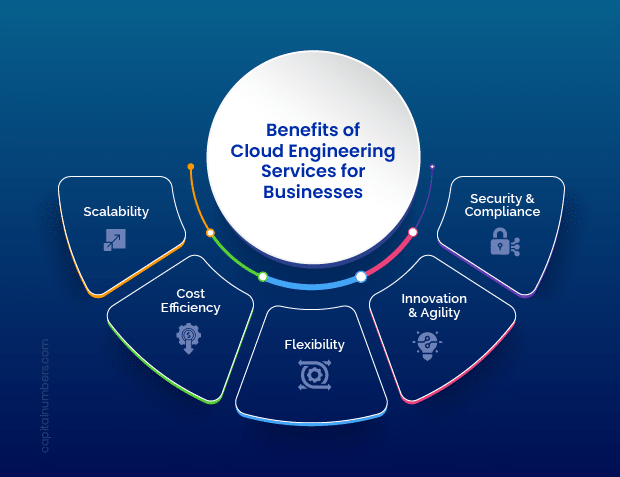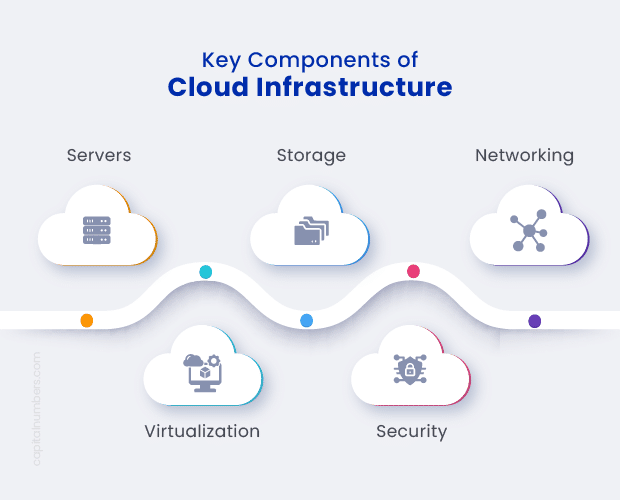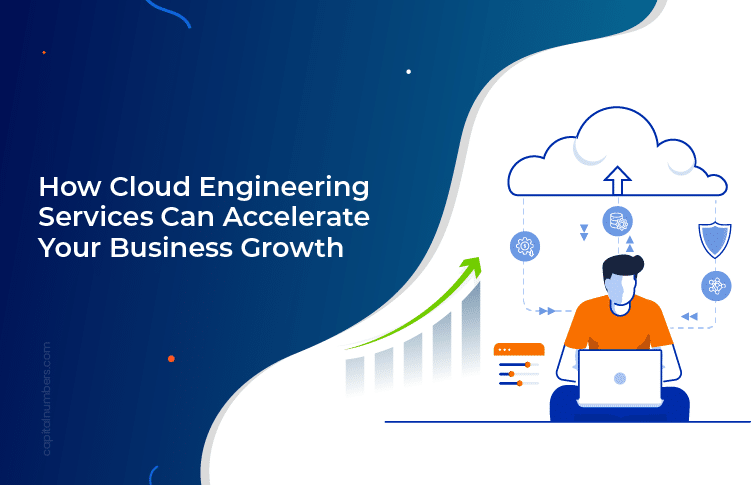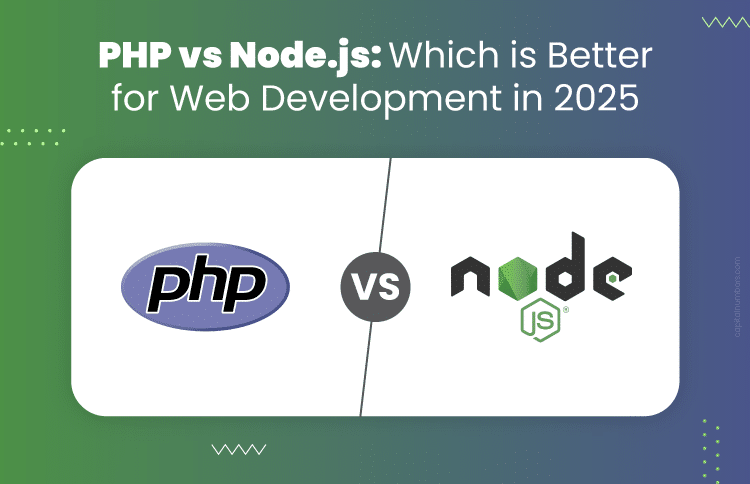How Cloud Engineering Services Can Accelerate Your Business Growth
Table of Contents
The world is changing faster than ever, and businesses are under pressure to keep up. Agility, innovation, and scalability aren’t just nice extras anymore – they’re must-haves to stay competitive. At the heart of this transformation lies the cloud. But what exactly does the cloud mean for businesses today? Why is it so integral to modern growth strategies? Let’s dive in.
Overview of Cloud Technologies in the Business Environment
You’ve probably heard terms like cloud computing, cloud infrastructure, and cloud apps. But what do they really mean? In simple terms, the cloud allows businesses to store data online, access powerful tools over the internet, and scale their resources as needed. This makes it easier for companies to manage operations, grow quickly, and stay flexible in a fast-changing world.
Gone are the days when businesses could afford rigid, on-premises systems that demanded huge upfront investments and lengthy deployment times. Today, organizations are making a strategic shift towards cloud-based solutions that offer flexibility, cost savings, and rapid scalability.
Consider accessing information from anywhere, anytime, on any device. The cloud enables this seamless accessibility, driving productivity while keeping costs in check. From startups to multinational enterprises, the cloud offers a pathway to innovation without the heavy burden of physical infrastructure.
It’s no surprise then that businesses are turning to cloud engineering companies to guide them through this transition—building, deploying, and managing solutions that future-proof their operations.
Understanding Cloud Engineering Services and Their Business Benefits
What Are Cloud Engineering Services?
Cloud engineering services cover a wide range of tasks that ensure your cloud environment is efficient, secure, and scalable. Here are some of the key services they offer:
- Cloud infrastructure design: Building the foundation for how your systems work in the cloud.
- Cloud migration: Moving all your data and applications from traditional systems into the cloud.
- Management and optimization: Keeping everything running smoothly, optimizing for performance, and ensuring costs stay low.
A cloud engineering company handles all of this for you. They create custom cloud architectures, help you scale as you grow, and ensure your systems stay secure and compliant with the latest industry standards. Essentially, they’re your cloud experts.
Benefits of Cloud Engineering Services for Businesses

So, why should you care about cloud engineering? These services offer a wide range of benefits that simplify your operations and significantly boost your business’s efficiency.
- Scalability: Imagine you need more server space as your business grows, or you’re launching a big new product. Instead of investing in new hardware, you can just expand your cloud infrastructure with a few clicks. No stress, no downtime.
- Cost Efficiency: Say goodbye to huge upfront investments in hardware (CapEx). With cloud services, you only pay for what you use. Plus, ongoing operational costs (OpEx) are lower since everything is managed in the cloud.
- Flexibility: Markets change, and so do customer needs. With cloud engineering services, you can quickly adapt – launching new features or services faster without being tied down by old technology.
- Innovation and Agility: The cloud lets you experiment more. Want to try out a new idea? Develop and test it in the cloud quickly, and if it works, scale it up fast. Your time-to-market becomes much shorter.
- Security and Compliance: Security is a big deal, especially with all the regulations out there. Cloud engineering companies ensure your systems meet industry standards, from data protection to compliance requirements like GDPR or HIPAA.
In short, cloud engineering services offer a way to keep your business flexible, cost-efficient, secure, and ready to innovate – all while letting you focus on what really matters: growing your business.
What is Cloud Application Development?
Cloud application development is the process of creating software applications that are designed to run in cloud environments rather than traditional on-premise infrastructure. These cloud-native applications leverage the full potential of cloud computing, allowing them to scale seamlessly, perform optimally, and offer robust security.
Technically, cloud-native apps are built using microservices architecture, which breaks down the application into smaller, independent services. These services can be developed, deployed, and maintained individually, allowing for continuous updates and scalability. They are also typically containerized using platforms like Docker and orchestrated by tools like Kubernetes, ensuring that applications can run consistently across various environments.
A cloud application development company helps businesses build and deploy these applications using advanced cloud platforms like Amazon Web Services (AWS), Microsoft Azure, or Google Cloud Platform (GCP). They ensure the applications are:
- Scalable: Able to handle increasing workloads by scaling horizontally (adding more instances) or vertically (upgrading resources).
- Secure: Incorporating security best practices such as end-to-end encryption, multi-factor authentication (MFA), and robust identity management to protect sensitive data.
- Optimized: Leveraging cloud features like load balancing, auto-scaling, and distributed databases (such as AWS RDS or Google Cloud Spanner) to ensure performance and efficiency.
You May Also Read: AWS vs Azure vs Google Cloud Platform: A Detailed Comparison.
Benefits of Cloud Application Development for Business Growth
Now that you understand what cloud application development is, let’s explore how it drives business growth, with a few more technical insights:
- Cost Reduction: Traditional applications require heavy investments in physical infrastructure and ongoing maintenance. With cloud-native apps, businesses can significantly reduce these costs by relying on pay-as-you-go models provided by cloud platforms. There’s no need to overprovision servers or worry about underutilized resources, thanks to auto-scaling features. Plus, using serverless computing (like AWS Lambda), businesses only pay for actual execution time rather than keeping servers running constantly.
- Faster Deployment: Cloud platforms provide a range of tools that speed up the development and deployment process. For example, using CI/CD pipelines with tools like Jenkins, CircleCI, or AWS CodePipeline, developers can automate the testing, building, and deployment of applications. This means updates and new features can be rolled out faster, allowing businesses to react quickly to market demands or customer feedback.
- User Experience: Cloud applications offer higher availability and reliability compared to traditional apps. Features like multi-region deployments, content delivery networks (CDNs), and auto-healing infrastructure ensure that the app is always available to users, with minimal latency. Additionally, using real-time data processing services like AWS Kinesis or Google Cloud Pub/Sub, businesses can deliver responsive and interactive user experiences, processing data as it’s generated without delays.
- Maintenance and Updates: One of the biggest technical advantages of cloud-native applications is immutable infrastructure. This means that every update or patch is treated as a new deployment rather than modifying an existing one. Using containerization (with Docker or similar), developers can update individual services or components without impacting the rest of the application, ensuring minimal downtime. The use of CI/CD pipelines automates this process, enabling continuous integration and delivery. Moreover, with the blue-green deployment strategy, you can run two identical production environments—one active, one on standby—so you can deploy updates to the standby environment and switch traffic over seamlessly once it’s tested. This ensures users experience zero downtime during updates.
- Security and Compliance: Cloud platforms provide comprehensive security measures, including data encryption at rest and in transit, role-based access control (RBAC), and identity and access management (IAM) services. In regulated industries, cloud services also offer tools for compliance monitoring and audit logging, ensuring adherence to standards like HIPAA, GDPR, or PCI DSS. Regular security patches, penetration testing, and security audits are part of cloud-native development, further ensuring robust protection against evolving threats.
By combining the best of modern development practices—microservices architecture, containerization, and continuous integration—with the inherent advantages of the cloud, cloud application development allows businesses to innovate faster, respond to customer needs more efficiently, and stay secure and compliant in a dynamic environment.
Understanding Cloud Infrastructure
When we talk about cloud infrastructure, we’re talking about the engine room of the cloud—the foundation that powers everything from simple web applications to complex enterprise solutions. In simple terms, it’s the combination of hardware and software resources hosted remotely, and delivered to you as a service over the internet.
Key Components of Cloud Infrastructure

1. Servers:
In the cloud, servers are virtualized versions of the physical machines you’d typically find in data centers. These virtual servers, often referred to as compute instances, do the heavy lifting—handling all the processing for your applications. Cloud platforms like AWS EC2, Microsoft Azure Virtual Machines, and Google Compute Engine provide flexible server instances that can scale up or down based on demand.
These servers are typically part of clusters spread across multiple data centers, providing high availability and fault tolerance. If one server fails, your workloads are automatically shifted to another, ensuring minimal disruption.
Many cloud services offer auto-scaling, which allows the infrastructure to automatically adjust the number of active servers based on the current workload. This ensures that you’re not paying for idle resources while maintaining performance during peak times.
2. Storage:
In the cloud, storage solutions are designed to handle everything from small databases to massive data lakes.
- Object Storage: Cloud platforms offer object storage solutions like AWS S3, Azure Blob Storage, and Google Cloud Storage, which are perfect for storing unstructured data like images, videos, backups, and logs. These services are designed for durability and can replicate data across different regions for disaster recovery.
- Block Storage: For workloads that require high-performance storage, cloud platforms provide block storage solutions like AWS EBS or Google Persistent Disks. This is akin to attaching a hard drive to your virtual server and is used for databases or high-demand applications.
- Archival Storage: For long-term data retention, you can use cloud solutions like AWS Glacier, which provides inexpensive storage for infrequently accessed data, while still maintaining quick access when needed.
3. Networking
Cloud networking is what connects everything together—allowing servers, storage, and applications to communicate across vast distances. In traditional infrastructure, networking would involve complex setups of switches, routers, and firewalls. In the cloud, these are virtualized and abstracted, giving you powerful tools to manage your network with ease.
- Virtual Private Cloud (VPC): Services like AWS VPC, Azure Virtual Networks, and Google VPC give you control over your own isolated network environment within the cloud. You can define subnets, route tables, and gateways, ensuring your infrastructure is secure and isolated from other users on the cloud platform.
- Load Balancers: Cloud providers offer load balancers that automatically distribute incoming application traffic across multiple servers to ensure no single server becomes overloaded. Tools like AWS Elastic Load Balancing (ELB) or Google Cloud Load Balancing help maintain performance and uptime, even under heavy traffic.
- Content Delivery Networks (CDNs): For businesses serving global customers, CDNs like AWS CloudFront or Azure CDN are critical. They cache content in edge locations close to users, reducing latency and speeding up content delivery for a smooth, fast user experience.
4. Virtualization:
Virtualization allows a single physical server to be divided into multiple virtual machines (VMs), each running its own operating system and applications. This means more efficient use of hardware and easier management of resources.
- Hypervisors: Virtualization is made possible by software known as a hypervisor, such as VMware, KVM, or Hyper-V. The hypervisor abstracts the physical hardware and provides each virtual machine with its own virtualized environment.
- Containers: Going a step beyond traditional VMs, containers (like those managed by Docker and Kubernetes) are a lightweight virtualization option that allows developers to package applications and their dependencies into isolated units. Containers are faster to start, easier to scale, and consume fewer resources than VMs, making them a popular choice for cloud-native application development.
5. Security:
Cloud platforms offer a variety of tools to secure your data and applications, from network-level firewalls to data encryption.
- Identity and Access Management (IAM): Services like AWS IAM, Azure Active Directory, and Google Cloud IAM let you control who has access to your cloud resources. You can define roles and permissions for each user, ensuring that only authorized personnel can make changes to your infrastructure.
- Encryption: Cloud platforms offer built-in encryption options for both data at rest (stored data) and in transit (data moving across the network). Services like AWS Key Management Service (KMS) allow you to manage your encryption keys with ease, ensuring sensitive data is protected.
- Firewalls and Security Groups: Virtual firewalls and security groups allow you to control inbound and outbound traffic to your cloud infrastructure. These firewalls are highly configurable, ensuring only the necessary traffic reaches your servers and applications.
Factors to Consider When Selecting a Cloud Engineering Company
1. Experience in Your Industry
Every industry has its own unique challenges and requirements when it comes to the cloud. A cloud engineering company with experience in your sector understands these specific details. For instance, if you’re in healthcare, they’ll know how important it is to ensure HIPAA compliance and keep patient data secure.
2. Expertise in Cloud Application Development and Cloud Infrastructure Management
A good cloud engineering company is not just about providing off-the-shelf services – they should excel in both cloud application development and cloud infrastructure management . These are the building blocks of a strong cloud strategy.
- Cloud Application Development: You want a company that can design and build custom cloud-native applications tailored to your business. This means expertise in developing applications using microservices, leveraging containerization tools like Docker or Kubernetes, and implementing CI/CD pipelines for fast, seamless updates.
- Cloud Infrastructure Management: On the infrastructure side, they need to manage your resources efficiently—everything from auto-scaling, load balancing, and disaster recovery to security protocols like end-to-end encryption. The ideal partner will also be skilled in optimizing costs through efficient use of compute instances and storage resources.
3. Proven Track Record of Delivering Growth-Driven Cloud Engineering Services
It’s always a good idea to look for proof of past success. A reliable cloud engineering company should have a proven track record of delivering results – specifically, helping businesses scale, reduce costs, and drive innovation.
Check out their portfolio:
- Have they successfully implemented large-scale cloud migrations?
- Can they demonstrate how they’ve helped businesses improve performance, reduce downtime, or scale rapidly?
It’s important to work with a partner that has helped other businesses grow—because ultimately, that’s what you’re aiming for too.
Conclusion
At the heart of it all, cloud engineering services are about unlocking potential. They help businesses become more agile, scalable, and cost-efficient. The beauty of the cloud lies in its flexibility—there’s no need to invest in huge data centers or worry about being stuck with outdated infrastructure. Instead, cloud infrastructure gives you the power to expand as needed, shrink when necessary, and stay competitive in a constantly evolving market.
With the right cloud engineering company by your side, you’re not just moving to the cloud – you’re positioning your business for long-term growth. These experts bring together the best of cloud infrastructure management and cloud application development to build solutions that are not only efficient but also customized to your needs.
Whether you’re a startup looking to scale quickly or an established enterprise aiming to innovate, cloud engineering services offer a powerful way to get there.
Looking for a cloud engineering company to take your business to the next level? Contact us today to discover how we can help you accelerate growth and stay competitive!















